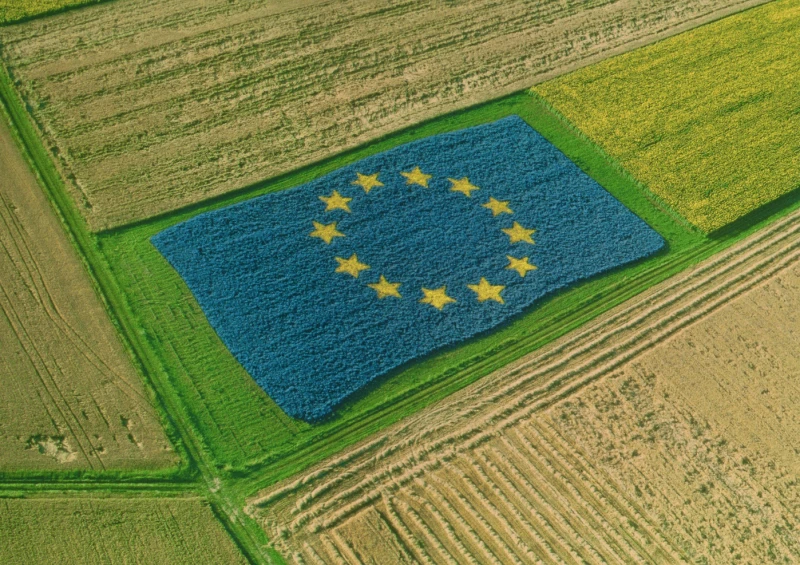‘Steadily increasing’ GMO acceptance in Europe fuels efforts to revise biotech restrictions
‘Steadily increasing’ GMO acceptance in Europe fuels efforts to revise biotech restrictions


Since 1996 till 2018, the global area cultivated with GM crops has increased 113-fold, making biotech crops one of the fastest adopted crop technology in the past decades. In the European Union, only two countries still cultivate one available transgenic crop event on minor hectarage. Moreover, the number of notifications for confined field trials has dramatically dropped in the last decade. All these are happening while the EU legislation on GM crops has come under severe criticism.
The percentage of EU citizens concerned about the presence of GMOs in the environment has decreased from 30% (in 2002) to 19% (in 2011), while the level of concern about the use of GM ingredients in food or drinks has decreased from 63% (in 2005) to 27% (in 2019). The steadily increasing acceptance of the EU citizens of GMOs in the environment and food, as it was recorded by Eurobarometers, should additionally ease the way and support a positive change of the legal framework that regulates the GM crops’ testing and commercial cultivation in the EU.
…
In contrast with the supportive opinions of the EU experts toward the use of GMOs, the attitude of the majority of the European citizens has long been suggested to remain a reluctant and skeptical one. In [the] EU, citizens’ views of a variety of topics are regularly surveyed by the Eurobarometer studies commissioned by the European Commission to monitor the evolution of public opinion over several years, using uniform questionnaires and large numbers of interviews to obtain representative data.
A different series of special Eurobarometers have recorded the evolution of the concerns expressed regarding the use of GMOs for farming or as food ingredients, and the percentage of EU citizens concerned about the use of GMOs has substantially decreased over the last two decades. This officially recorded trend supports, and also argues for, an immediate change of the present, not-fit-for the purpose, GMO regulatory framework to meet EU citizens’ expected benefits which GM crops could offer.
Read the original post

 | Videos | More... |

Video: Nuclear energy will destroy us? Global warming is an existential threat? Chemicals are massacring bees? Donate to the Green Industrial Complex!
 | Bees & Pollinators | More... |

GLP podcast: Science journalism is a mess. Here’s how to fix it

Mosquito massacre: Can we safely tackle malaria with a CRISPR gene drive?

Are we facing an ‘Insect Apocalypse’ caused by ‘intensive, industrial’ farming and agricultural chemicals? The media say yes; Science says ‘no’
 | Infographics | More... |

Infographic: Global regulatory and health research agencies on whether glyphosate causes cancer
 | GMO FAQs | More... |

Why is there controversy over GMO foods but not GMO drugs?

How are GMOs labeled around the world?

How does genetic engineering differ from conventional breeding?
 | GLP Profiles | More... |

Alex Jones: Right-wing conspiracy theorist stokes fear of GMOs, pesticides to sell ‘health supplements’




 California, Washington, Oregon forge immunization alliance to safeguard vaccine access against federal undermining
California, Washington, Oregon forge immunization alliance to safeguard vaccine access against federal undermining Trust issues: What happens when therapists use ChatGPT?
Trust issues: What happens when therapists use ChatGPT? Fighting deforestation with CO2: Biotechnology breakthrough creates sustainable palm oil alternative for cosmetics
Fighting deforestation with CO2: Biotechnology breakthrough creates sustainable palm oil alternative for cosmetics Viewpoint — Fact checking MAHA mythmakers: How wellness influencers and RFK, Jr. undermine American science and health
Viewpoint — Fact checking MAHA mythmakers: How wellness influencers and RFK, Jr. undermine American science and health 30-year-old tomato line shows genetic resistance to devastating virus
30-year-old tomato line shows genetic resistance to devastating virus Viewpoint: Video — Big Solar is gobbling up productive agricultural land and hurting farmers yet providing little energy or sustainabilty gains
Viewpoint: Video — Big Solar is gobbling up productive agricultural land and hurting farmers yet providing little energy or sustainabilty gains The free-range chicken dilemma: Better for birds, but with substantial costs
The free-range chicken dilemma: Better for birds, but with substantial costs ‘You have to treat the brain first’:Rethinking chronic pain with Sanjay Gupta
‘You have to treat the brain first’:Rethinking chronic pain with Sanjay Gupta
